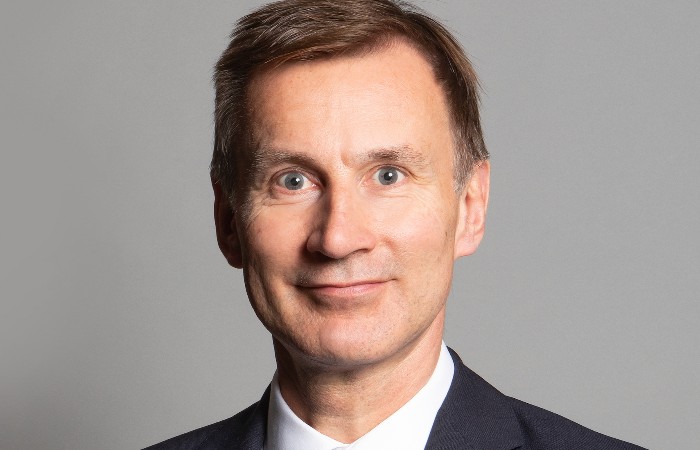I wish pharmacy had more resources when funding was cut, says former health secretary
In Health & NHS news
Follow this topic
Bookmark
Record learning outcomes
Jeremy Hunt has said he wished community pharmacies in England had been given more resources when he was health secretary and displayed a sense of regret about the Conservative Government’s decision to slash their funding in December 2015.
Hunt (pictured), who was health secretary from 2012 to 2018, was in reflective mood during yesterday’s Company Chemists’ Association conference in London as he tried to defend his time in the post, a period which coincided with David Cameron’s Government cutting pharmacy’s funding by six per cent and sending shockwaves through the sector.
Community Pharmacy England has said pharmacies collectively have experienced a 30 per cent fall in funding in real terms since 2015, leading to severe pressure on their services and closures.
When asked if he regretted the Conservatives’ decision to reduce community pharmacy funding 10 years ago, Hunt told Independent Community Pharmacist: “There were lots of areas of funding that I wished we had more money for. The process of, not just pharmacy funding, but funding for social care and other really important areas, having to reduce funding for that in order to deal with the pressure in hospitals was what persuaded me that we needed more money for the NHS budget.
“That was why, in the six months before I stopped being health secretary, I negotiated the £21 billion increase in the NHS budget with Philip Hammond when he was chancellor.”
Hunt attempted to push back against criticism of his time as health secretary by insisting he introduced a series of mechanisms that were designed to support pharmacy.
“I absolutely accept the sector needed more money. It was a very difficult period. I did do things like the pharmacy access scheme, the quality payment scheme, the integration fund, various things I could do to help the sector through difficult times,” he said.
“In the end, if you are saying ‘do I accept the case that the sector needed more resources’, yes I do.”
Hunt: Labour’s NHS plan is “good” but there are big risks
Hunt also said Labour’s 10-year NHS plan was “good” and “sensible” but warned the pressure on the UK’s public finances posed “big risks” to its health service blueprint.
“The key question is how we make sure it isn’t just words and keeps on board not just the pharmacy sector but all the other parts of the NHS family,” he said.
Hunt, who was chancellor between 2022 and 2024, said Labour’s commitment in its spending review this year to increase the NHS budget by three per cent annually compared with 3.3 per cent offered by the Conservatives in 2019 as part of its NHS long term plan.
He insisted that was not a criticism of Labour, just “a reflection of the financial reality which I was only too aware of when I was chancellor”.
“Public finances are under enormous pressure. What that means is it’s going to be very difficult to use that (10-year) plan to deliver proper transformation,” Hunt said.
“I hope the pharmacy sector fights really hard to make sure we continue to see progress. The biggest risk with money is it gets used up on big pay awards and that’s why (current health secretary) Wes Streeting has an unenviable position. When I was chancellor, we had big public sector pay strikes.”
Hunt said Labour’s “principle political objective” to reduce hospital waiting lists presented the “biggest risk of all”.
“There will be huge gravitational pull in the system to get that extra money into hospitals so they can do more operations and get waiting lists down,” he said.
“And, of course, that is not the right answer because the primary care sector can play as big a role in bringing down waiting lists by stopping people getting on them in the first place through the prevention agenda. But that is a battle that is going to have to be won.”
I always thought pharmacy should have read-write access
Hunt insisted he began the process of integrating community pharmacies into “core NHS work” as health secretary by ensuring every pharmacy had access to summary care records.
However, pharmacies across the country are yet to be given read-write access to records despite talk of it happening in community pharmacy for more than a decade.
“When I became health secretary, there was only one A&E in the country that had access to GP summary care records and I don’t think any pharmacists did at all,” Hunt said.
“In 2014, we announced we were going to change that for both and by the time I left, every pharmacy and every A&E department had access to summary care records.
Hunt said he was excited by Labour’s pledge to give community pharmacies read-write access in their 10-year plan.
“It’s now starting in London and Greater Manchester, there are some pilots where you have got full read-write access to medical records and it’s in the 10-year plan and that is going to be rolled out,” he said. “That will be very exciting.”

